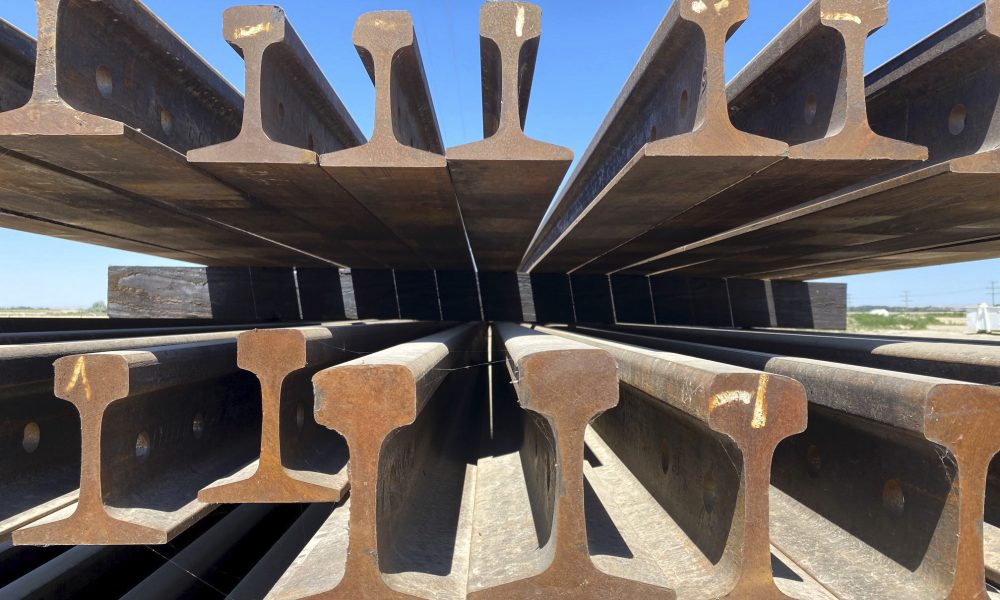VALE – The public company set up by Malheur County to oversee the Treasure Valley Reload Center has already exhausted its yearly county budget to cover operating expenses, raising questions about overall fiscal management even as officials lobby for more cash for the project.
While the sums are not large, they represent yet another red flag that costs of the project continue to exceed what was projected and prompt concerns about fiscal oversight by local leaders.
The Malheur County Development Corp. and the Malheur County Court inked a deal in July providing $55,000 for the next year from the county’s economic development budget for the company’s administrative expenses. The contract specified the county money could be used for accounting, loan interest and general office expenses.
As of Dec. 12, and just six months into the budget year, the development corporation has claimed expenses of $69,004 according to county records obtained by the Enterprise through a public record request. That’s $14,000 in excess of what the county contract stipulates.
With continued borrowing needed, the development company’s draw on county funds is expected to continue. Records show it paid $55,000 in interest on its credit line in just six months.
The accounting documents also show the development company used county money for memberships in the Chambers of Commerce in Ontario and Nyssa and to cover a $200 penalty paid to the Enterprise for its handling of public records.
Malheur County Judge Dan Joyce said Thursday, Dec. 22, he was not informed by the development corporation it exceeded its budget.
“That has never come up. I don’t understand why we haven’t been told about this yet,” said Joyce.
Joyce said such payments are coordinated through Malheur County Administrative Officer Lorinda DuBois and the state Transportation Department.
In fact, the money comes from the county’s economic development budget, not from the state.
Joyce said he had not been notified of the overruns by Greg Smith, a Heppner state legislator who is the manager of the rail project or Grant Kitamura, general manager and part owner of the onion packing firm Baker & Murakami Produce Co., and president of the development corporation.
“I can’t imagine them going beyond their limit and getting reimbursed,” said Joyce.
Joyce said he could not explain to county taxpayers why the overrun was allowed.
“I can’t because I just found out about it,” said Joyce, referring to questions from the Enterprise.
Joyce said he plans to investigate the budget overrun when DuBois returns from vacation at the first of the year.
“Those are questions I have to ask to get to the bottom of it. I don’t have any comment until I get some information,” said Joyce.
Kitamura said he wasn’t aware the development corporation exceeded its contract with the county.
“I can’t believe they paid us more than they agreed to,” said Kitamura.
Kitamura said the “bottom line is it is more than they agreed to give us.”
He said he plans to contact Smith and Brad Baird, lead engineer on the project from Anderson Perry & Associates, about the budget overrun.
“I will address it,” he said.
If the news of the budget overrun is news to Joyce, it wasn’t a surprise to the Smith based on email traffic obtained by the Enterprise through a public records request.
In an August email chain, Brian DiFonzo, the development corporation’s attorney, pointed out to Smith that the money set aside for operations wasn’t going to be enough.
“It is my understanding this amount has not been sufficient to sustain the general operation of MCDC,” wrote DiFonzo.
Smith replied, “I concur.”
“While I do not have the exact projected interest expense, there is no doubt that it will be significantly greater than $50,000,” wrote Smith.
Smith apparently did not tell county officials of that at the time they approved the contract.
The reload center is designed so onion producers can truck their produce to the site north of Nyssa for loading onto rail cars for shipment to destinations in the Midwest and East.
The majority of the funding for the project comes from a $26 million outlay approved by the Oregon Legislature in 2017, and two $3 million special appropriations, one in 2021 and a second one September.
News tip? Contact reporter Pat Caldwell at [email protected]
PREVIOUS COVERAGE:
County court approves $2 million in bailout funds for Treasure Valley Reload Center
Reload project managers mum on interest costs for contractors
A rail spur cast as a $2 million surprise was required in reload center plans
Your guide to the Treasure Valley Reload Center – get the history, purpose and status
EXCELLENCE IN JOURNALISM – Available for $7.50 a month. Subscribe to the digital service of the Enterprise and get the very best in local journalism. We report with care, attention to accuracy, and an unwavering devotion to fairness. Get the kind of news you’ve been looking for – day in and day out from the Enterprise.




